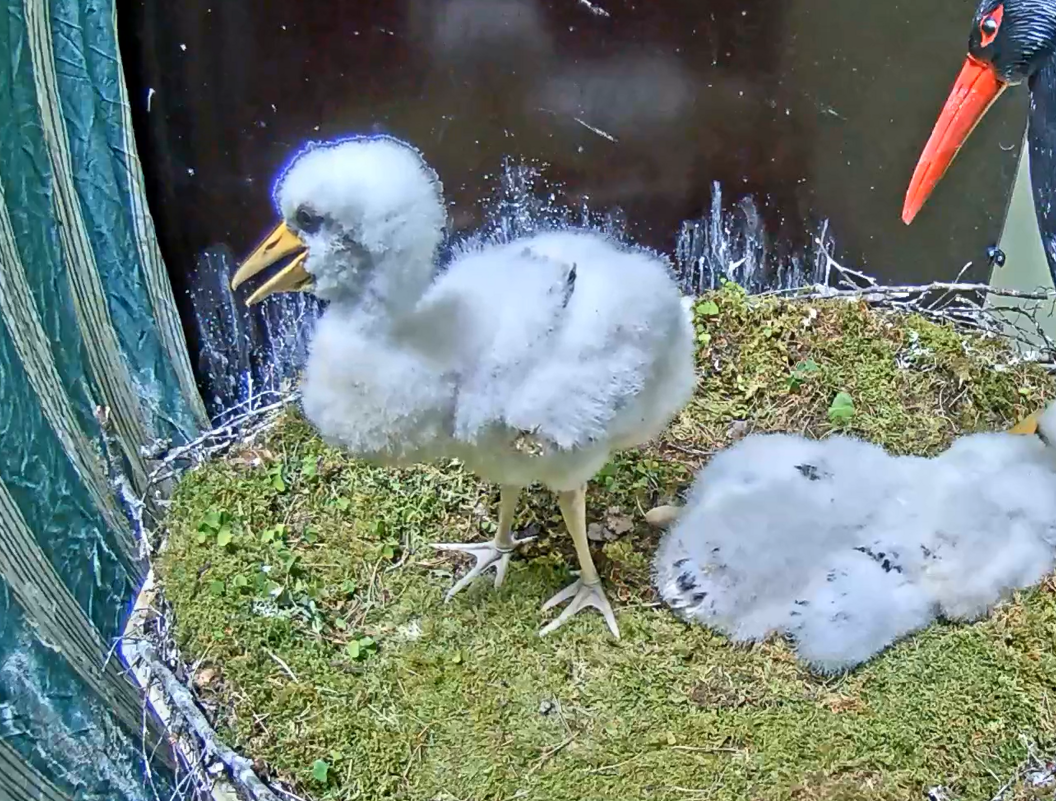STREAMING https://video.emu.ee/otsevideo-musta-to ... kliinikus/
Otsevideo: musta toonekure pojad kosuvad maaülikooli loomakliinikus
Live video: The sons of a black stork recover at an animal clinic at the University of Life Sciences
Paljud loodushuvilised nii Eestis kui kaugemal elasid kaasa Jõgevamaal asuva musta-toonekure pesitsemisele, kuni ühel hetkel jäid koorunud pojad vanemliku hoolitsuseta. Mis täpselt juhtus, ei ole veel teada, kuid ellu jäänud pojad otsustati tuua maaülikooli loomakliinikusse, kus nad kosuvad.
Kotkaklubi püsti pandud musta-toonekure (Ciconia nigra) pesakaamerat käis vaatamas tuhandeid inimesi. Paljude silme all leidis aset draama, kus isaslind kadus 1. juunil ning emane ei suutnud poegade eest üksi hoolitseda ja ta viibis pesast öösiti eemal.
Kuna pojad on niivõrd väikesed, et vajavad vanemate hoolt elus püsimiseks, siis kaks poega paraku surid. 5. juunil otsustasid kotkaklubi liikmed viia järgi jäänud pojad Eesti Maaülikooli loomakliinikusse, kus nad saavad mõnda aega peavarju ja nende eest hoolitseb dr. Madis Leivits.
Kui kasvamine õnnestub, on poegadel lootust rännata edasi looduslikku asenduspesasse ja sealt juba edasi vabadusse. Poegade kasvatamisel üritame võimalikult vähe laskuda nendega kontakti, et säiliks nende inimpelglikkus, kinnitas Madis Leivits. Näiteks toitmise ajal on abiks isaskurg Toru (tehtud torust), kellel on alati pesa külastades poegadele kala pakkuda.
Maaülikooli metsloomadest patsiente on võimalik toetada:
SA Eesti Maaülikooli Joosep Tootsi Fond
EE637700771000812666 (LHV)
Selgitusse kirjutada “metsloom”
Rohkem infot:
https://loomakliinik.emu.ee/suurloomakl ... meditsiin/
GT (few corrections)
Many nature lovers both in Estonia and further away like watching the nesting of a black stork pair in Jõgeva County, until at one point the hatched sons were left without parental care. It is not yet known exactly what happened, but it was decided to bring the surviving sons to the animal clinic at the University of Life Sciences, where they will recover.
Thousands of people visited the nesting camera of a black stork (Ciconia nigra) set up by an eagle club. There was a drama in the eyes of many, where the male bird disappeared on June 1 and the female could not take care of the chicks alone and was away from the nest at night.
Because the sons are so small that they need parental care to survive, two sons died. (Marika: 6 storklet hatched - No6 and No5 perished because brood reduction and No4 most probably because hypothermia; No 1, 2 and 3 are on the clinic) On June 5, the members of the Eagle Club decided to take the remaining sons to the animal clinic of the Estonian University of Life Sciences, where they will be sheltered for a while and will be taken care of by dr. Madis Leivits.
If the growth is successful, the chicks will be relocated further to an natural replacement nest/artificial nest and from there on to freedom, hope to migrate further. When raising sons, we try to make as little contact with them as possible in order to preserve their human avoidance, confirmed Madis Leivits. For example, during feeding, the male stork Toru (made of tubing) helps, who always to offer fish to the chicks when visiting the nest .
Patients from wild animals at the University of Life Sciences can be supported:
Estonian University of Life Sciences Joosep Tootsi Foundation
EE637700771000812666 (LHV)
Write "wild animal" in the explanation
More information:
https://loomakliinik.emu.ee/suurloomakl ... meditsiin/














